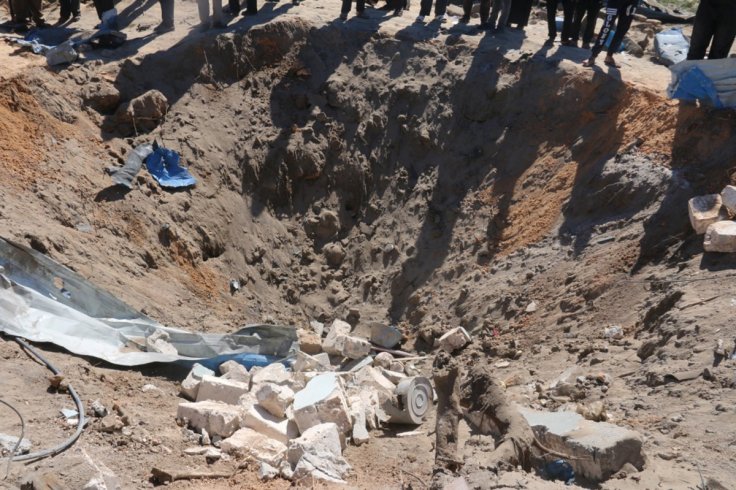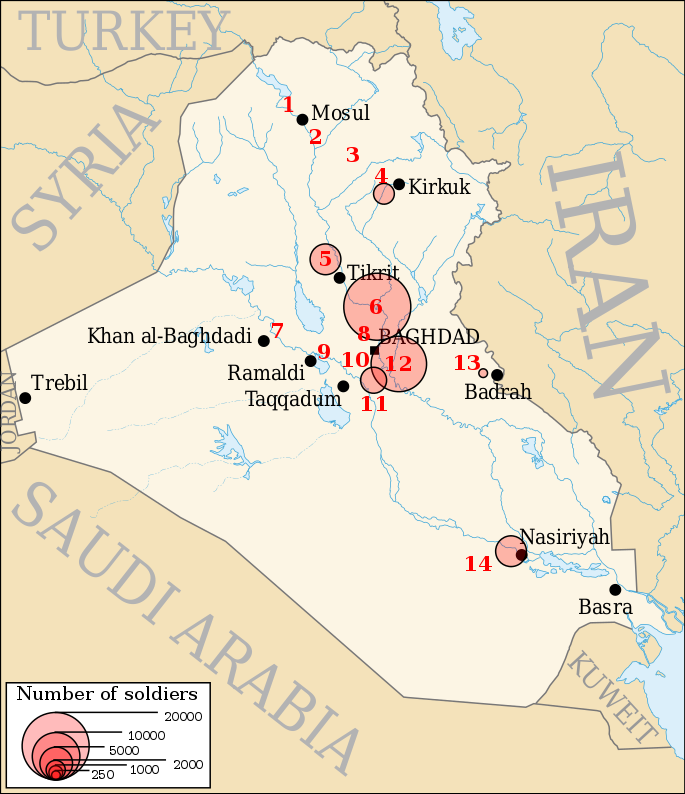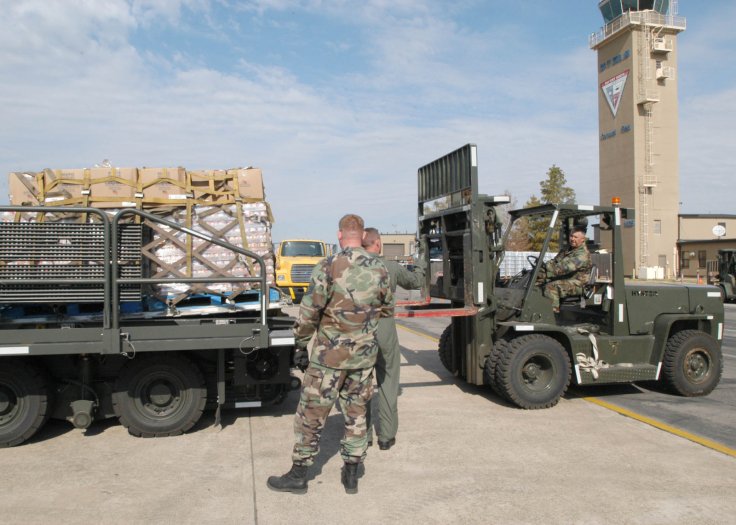A day after explosives-laden drones were fired into the northern Iraqi city of Arbil, where the US has a consulate, the US military carried out precision airstrikes against the facilities of Iranian-backed militias near the Iraq-Syria border region.
The Air Force used F-15 and F-16 fighter planes in the operation and all the jets returned to the air base without incident.
Pentagon Press Secretary John Kirby said the facilities targeted were used by Iran-backed militia groups that launched dozens of drone attacks targeting US interests in the region.

40 Attacks Against US Interests in One Year
There have been more than 40 attacks against locations that host US soldiers in Iraq since the beginning of the year, even as the Iranian-backed militia groups pressed for a full scaling back of US soldiers from Iraq. The US still hosts more than 2,500 soldiers in the region as part of the fight against the battered down factions of the Islamic State of Iraq and Syria that are still active in the region.
Kirby said the US took the action to limit the risk of escalation, and to send a clear and unambiguous deterrent message. "As demonstrated by this evening's strikes, President Biden has been clear that he will act to protect U.S. personnel. Given the ongoing series of attacks by Iran-backed groups targeting U.S. interests in Iraq, the President directed further military action to disrupt and deter such attacks," Kirby added.

Hardliner Raisi Elected Iran President
The timing of the attack was significant as Washing is poring over the plans to restart the nuclear deal negotiations with Iran after President Donald Trump exited the deal in 2018. Last week Iran elected an ultra hardline cleric, Ebrahim Raisi as its next president.
Even as the Biden administration is considering the launch of talks with Iran there is increasing skepticism over the action domestically.
Former US assistant secretary of defense Lawrence Korb said the latest air strikes are a sign that Biden is "very definitely ... serving a notice" on Iran.
"The first time he used military force was about a month after he was inaugurated ... I think it was no accident that he did it then to send that signal to Iran. The fact that he's doing it now while they are about to undergo the seventh round of the talks on the JCPOA is him saying: 'Just because we are there, it doesn't mean we are going to ignore it (other issues)'," Korb told Al Jazeera.
Targeting Balad Airbase
In March this year, Iran-linked militant factions fired as many as seven rockets into an Iraqi airbase that houses US troops. The attack on the Al-Balad airbase in northern Baghdad did not cause any casualties or damage inside the US airbase. All the rockets were launched from a province neighboring Diyala, which is east of the base.

In February, shadowy terror outfit named 'Awliyaa al-Dam, or 'Guardians of Blood', attacked foreign troops stationed in Iraq's Irbil with rocket fire, killing at least one personnel and injuring five more. The attack in Irbil was deadliest strike at US forces in a in a year, while in early March, a US sub-contractor was killed in an attack on the Ain Al-Assad airbase in western Iraq.
In the same month, the US military launched airstrikes against Iran-backed targets in eastern Syria. The strikes in Syria were a response to the rocket attacks against US targets in Iraq. The US defense headquarters said the strikes targeted multiple facilities at a border control point used by Iranian-backed militant groups, such as Kata'ib Hezbollah (KH) and Kata'ib Sayyid al-Shuhada (KSS).
In early April, two rockets landed near an Iraqi military air base in Salahudin province north of capital Baghdad, which houses some US experts and advisers.
In January last year, Iran fired more than a dozen ballistic missiles at two United States military bases in Iraq. The strikes followed the death of more than 35 people during a stampede at the funeral of top Quds Force commander Qasem Soleimani, who was killed by the US drone strike in Baghdad.









